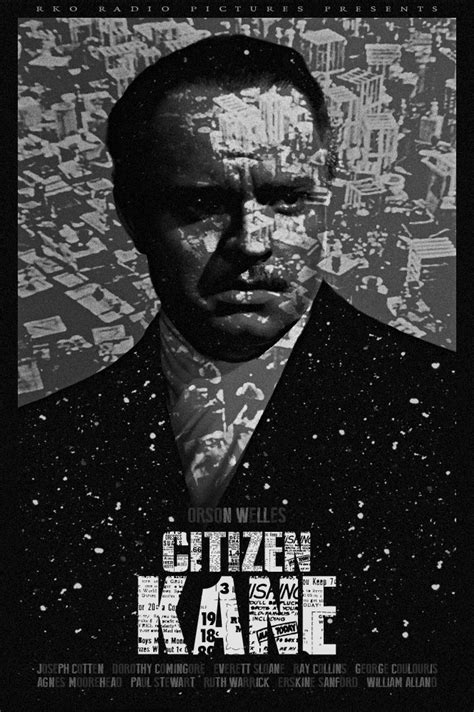Citizen Kane
directed by: Orson Welles, year: 1941
actors: Orson Welles, Joseph Cotten, Dorothy Comingore, Agnes Moorehead, Ruth Warrick
actors: Orson Welles, Joseph Cotten, Dorothy Comingore, Agnes Moorehead, Ruth Warrick

Description:
Citizen Kane is a groundbreaking American drama film directed by and starring Orson Welles. It follows the life of Charles Foster Kane, a wealthy newspaper magnate whose rise to power and eventual downfall are chronicled through a series of flashbacks. The film is renowned for its innovative narrative structure, deep focus cinematography, and pioneering use of sound. Citizen Kane is often regarded as one of the greatest films ever made, exploring themes of ambition, power, and the isolation that can accompany wealth.Keywords:
Backstory, Drama, Mystery, Classic, Ambition, Power, Black And WhiteWhy was Citizen Kane so controversial?
"Citizen Kane," directed by Orson Welles, was controversial for several reasons. Released in 1941, it was seen as a thinly veiled critique of newspaper magnate William Randolph Hearst, which led to significant backlash from Hearst and his media empire, including efforts to suppress the film. The innovative narrative structure and cinematography challenged conventional filmmaking, causing further debate among critics and audiences. Its exploration of themes like wealth, power, and the complexities of human nature also sparked discussions about morality and truth in media.
What was the point of the movie Citizen Kane?
"Citizen Kane," directed by Orson Welles, explores the life and legacy of Charles Foster Kane, a wealthy newspaper magnate. The film examines themes of power, ambition, and the elusiveness of happiness. Through a nonlinear narrative and innovative cinematography, it reveals how Kane's pursuit of success and love ultimately leads to isolation and unfulfilled dreams. The central question revolves around the meaning of "Rosebud," Kane's dying word, symbolizing lost innocence and the complexities of human experience. Overall, it critiques the American Dream and the nature of identity.
Is Citizen Kane based on a true story?
"Citizen Kane," directed by Orson Welles, is a fictional film, but it is often said to be loosely inspired by the life of real-life newspaper magnate William Randolph Hearst. The character Charles Foster Kane shares similarities with Hearst, particularly regarding his wealth, media empire, and complex personal life. However, the film is not a direct biography; it blends various elements of fiction and reality to explore themes of power, ambition, and the elusiveness of truth.
Is Citizen Kane worth watching?
Yes, "Citizen Kane" is widely regarded as one of the greatest films in cinematic history. Directed by Orson Welles, it features innovative storytelling techniques, including non-linear narrative and deep focus cinematography. The film explores themes of power, ambition, and the complexities of human nature through the life of Charles Foster Kane, a newspaper magnate. Its artistic achievements and cultural impact make it essential viewing for anyone interested in film, storytelling, or the evolution of cinema.
Explore More Categories: